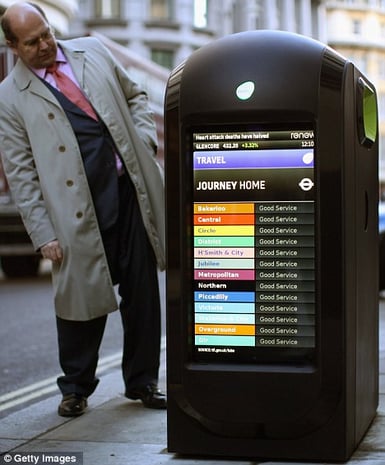From smart-marts to eco-taxis, London has always been at the frontline of the future. Its commitment to trialling cutting-edge technologies to adapt to the needs of its residents has kept it at number 3 in the smart city league tables. Smart cities have been an increasing focus for technological innovation in recent years. Currently, 55% of the world’s population lives in urban areas, this figure is set to explode by 2050. The predicted growth of urbanisation puts the world’s population living in urban areas at 66% by 2050, this would mean an additional 2.5 billion people added to city populations. With such expansion on the horizon, it’s only natural that metropolitan areas all over the world start considering the ways they can improve their operational efficiencies and the quality of services available for citizens.
Some of the common focuses of smart cities are reduced energy usage, tackling air pollution, improved transport and logistic routes and offering citizens solutions that can help make their life easier. Charging points, public wifi and contactless payment systems are all now common sights throughout London. The innovative Oyster and contactless card ticketing system is now used to make five million journeys on the transport network every day and has inspired similar systems the world. Air quality sensors are being rolled out throughout the city to create an accurate picture of the atmospheric pollution in London. One of the key challenges for policymakers is how to use some of the data they gather on city dwellers to innovate their current operations. One excellent example of how visionary tech companies are pathing the way for smart cities is Smart Ride and the City Mapper app. TFL’s open transport data was used to create City Mapper, the transport app which inputs data from all urban modes of transport and allows users to compare every possible route to their destinations, including the price. The data from the app and TFL was then utilised in the creation of the bus-taxi hybrid Smart Ride that takes users on a fixed route around the capital. The ride-sharing app offers demand responsive transport that offers the convenience of a taxi through an environmentally friendly ride-sharing transport - the Smart Ride vehicles can carry up to 8 people on board.
 Image Source: Getty Images
Image Source: Getty Images
The scarcity of urban space combined with poor urban logistics means there is much development needed to meet consumer demands in cities. As cities expand and urban space becomes increasingly limited, curb-side space is set to become the most premium property in the city. Online shopping deliveries, electric vehicle charging points, bike sharing docking stations, smart parking meters are all fighting for space on the curbside. The boom of ecommerce has led to changing consumer expectations; it is more convenient to order online and get your items delivered to your door. The speed of delivery is also an important issue for consumers in cities with limited time. There are currently very few scalable city logistic solutions to meet the demand for same-day delivery. There’s a desperate need for the kinds of demand responsive delivery services that are available in ride-sharing apps. Brisqq’s disruptive delivery platform moves away from traditional logistic models, it uses a crowd-sourced delivery fleet to meet the fluctuating demands of consumers. If you would like to learn more about this eco-friendly logistics model, click here.
High-tech cities still have much room for development. London has committed to be the smart city leader within the next 5 years. The new Smart London Plan looks to the tech community to improve digital collaboration and the urbanscape. There needs to be better data-sharing, improved connectivity and digital skills to ensure that technology is designed around Londoner’s needs. London is in the midst of serious change that hopefully push the city towards being cleaner, more efficient and much more sustainable.




